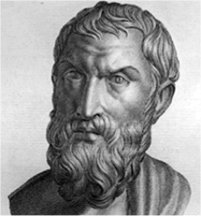On the Nature of (Our) Things

In a recent issue of the New Yorker, UCP author Stephen Greenblatt reminds us of the “strikingly modern” outlook of De rerum natura, Roman philosopher Lucretius’s epic, 7400-line poem On the Nature of Things, and its Epicurean atomic mindblow. Amid the celestial provenance of fortuna—fate, not divine intervention—Lucretius mixed up explanations of the material world (lightning, earthquakes, and heat) with a primer on disease and a pestilent description of a plagued Athens.
As Greenblatt notes:
Every page reflected a core scientific vision—a vision of atoms randomly moving in an infinite universe—imbued with a poet’s sense of wonder. Wonder did not depend on the dream of an afterlife; in Lucretius, it welled up out of a recognition that we are made of the same matter as the stars and the oceans and all things else. And this recognition was the basis for the way he thought we should live—not in fear of the gods but in pursuit of pleasure, in avoidance of pain. As it turned out, there was a line from this work to modernity, though not a direct one.
Should we follow that path? In The Lucretian Renaissance: Philology and the Afterlife of Tradition, Gerard Passannante takes us along these lines, tracing the rise of materialism in early modern Europe through the dissemination of Lucretius in scholarly practice and humanist thought. Blending Virgil, Bacon, Spenser, Montaigne, Newton, Henry More, and others, Passannante arrives at a particularly circuitous pensivity: What does it mean for a text to be reborn?
Greenblatt surrenders, er swerves, to this Lucretian lineage in an earlier piece for Harvard magazine, as well as the New Yorker article, and his most recent book The Swerve: How the World Became Modern. For Lucretius, the world was in perpetual motion, a flurry of atom-like particles that collided and conjoined in a literal swerve of stellar movement. Science may have changed, but we can still get down.